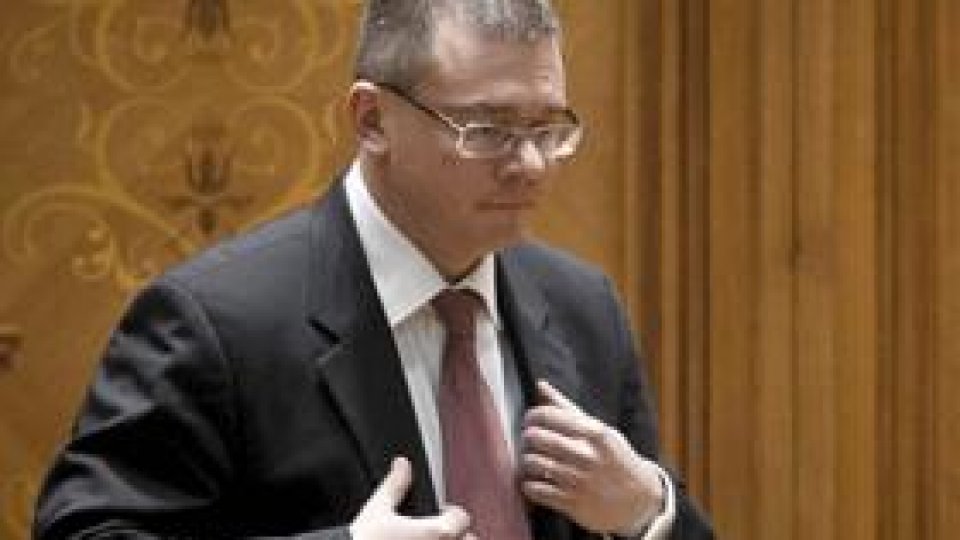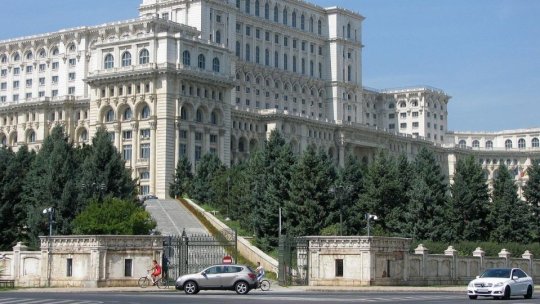Priorities of Ungureanu government in economy and health
Among the views announced by Prime Minister Mihai Răzvan Ungureanu are mentioned higher wages and pensions based on economic performance, but also the insertion of a new health law.

Articol de Paul Poteraşi, 11 Februarie 2012, 18:32
Among the stated views of the new government we can mention higher wages and pensions, the entrepreneurship and business promotion, but also a national plan for new places of employment, and this only to the extent that economic progress will allow it.
According to Radio Romania News reporter, Iulian Olescu, among the government’s anticipations regarding economic growth promotion and founding new employment places, there are included financial stability maintenance, the trigger of investments by absorbing European funds and increasing the quality of capital outlays, health and autochthon business environmental simulation, the inventory evaluation and active promoting for investment opportunities, and narrowing disparities of competitiveness in proportion to EU by simulating investments in research and development.
Many of these measures were included so far in the government program.
According to the General Secretary of the Businessmen’s Association of Romania, Cristian Pârvan, these are just ideas, they are not indicators or terms to set "until" it will be done.
‘We have nothing against supporting any kind of investment. Government cannot create working places within the government, the Government has to make the right conditions for the private sector to create working places ‘, said Cristian Pârvan.
The global economic context, also, is not able to assist the executive branch to support economic developments in Romania.
On Thursday, the National Institute of Statistics published data for the whole 2011 year, regarding the international trade and the turnover in trade and services.
Even as we have good news considering the general evolution of exports, which recorded increases of more than 20 percent last year, while imports raised up for about 17 percent, if we look back in the year of 2011 we determine oscillating evolutions after monthly increasing in the first term for exports, from risings to 21,4 percent in September compared to August to deductions of 20,8 percent in December compared to November, and the developments in the eurozone, which is a favorite destination for Romanian exports, does not give occasion for optimism.
Health law should be set by the end of the year
Health stands as one of the great challenges even for the new government.
IMF draws anew attention on critical needs for a reform of the defective medical system, which seem to have an even more complicated structure in the present legal coordinates.
Co-payment is out of question despite the fact that the law should have taken effect at the end of last month.
The project for the health law started from scratch, and the basic bundle is still a great unknown quantity.
According to Radio Romania News reporter, Adriana Turea, the main project that Health Minister Ritli Ladislaus considers of is the new health law implementation.
But this requires the consultation of all concerned: patients, management specialists and professional organizations.
The project should be ready later this year.
As regarding medical care, the Relevant Ministry and the National Health Insurance have managed to increase the amount allocated to this area by 15percent, but they want to improve the patient’s access to family doctor by removing the restriction of 20 consultations per day, which the family doctor ought to have.
Ritli Ladislau said that limiting the number of visits generates waiting lists, which is not a normal thing to do.
There should be almost unlimited access to the family doctor.
Diversified remuneration of medical staff according to performance is included in the action plan of the government, but the existing law has to be modified and applied only for those working in the public system.
The president of Romanian College of Physicians, professor doctor Vasile Astărăstoaie claims to be a good idea, but he cannot a way to apply it ‘as long as governments persists on handling doctors as state employees, although they are not budgetary, and medicine is a liberal profession, but the present law prevents from segregated payment in terms of performance ‘.
‘Only if the legislation changes, then we can find a way to implement such a project, which is an ambitious project’, said Vasile Astărăstoaie.
Limiting the number of admissions in hospitals, as a measure
The bundle of basic medical care services will be modified in the first instance by two measures: by settling access to very expensive drugs, these shall be prescribed only for diseases for which they were manufactured.
The second measure is to limit the number of admissions in hospitals, meaning for minor surgeries the patient will remain for a short time in hospital.
Another plan set by Health Ministry is to convert the co-payment law.
‘This is how things run nowadays, the patient has to pay a percentage of his revenue, which is extremely important in the lack of a correctly developed informational and logistics system.
"Not mentioning about notifying the population preliminary, I did not have time for that, as even IMF agreed to this measure for the legislation to be revised, to make a fixed amount, to create a very small amount, possible for everyone’, said Health Minister Ritli Ladislau.
The Co-payment Law was approved by the parliament last year and ought to take effect late January, in a form that cannot be applied, through which all of us should have paid a maximum amount equivalent to one twelfth of the wage.
Translated by: Anca Toma
MA Student, MTTLC, Bucharest University









